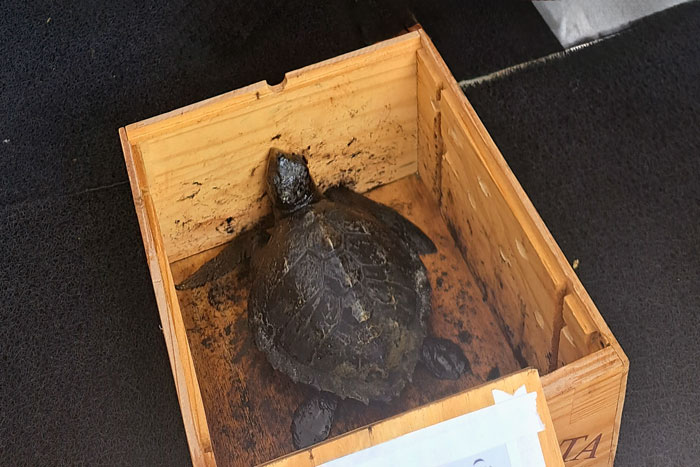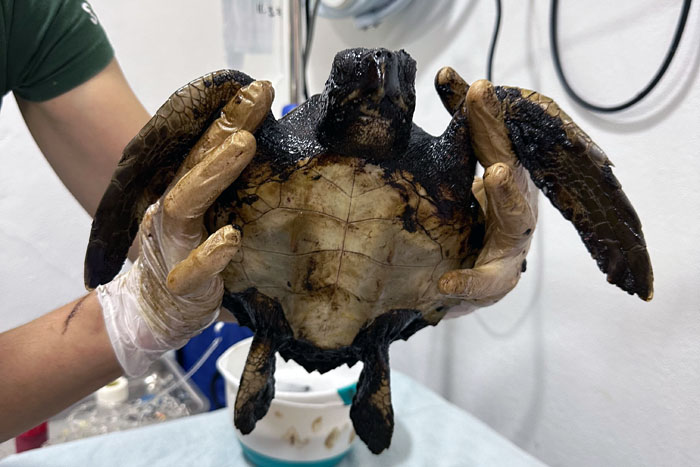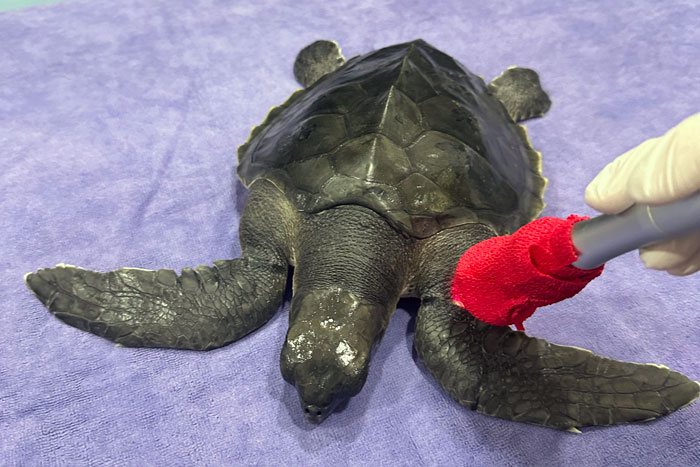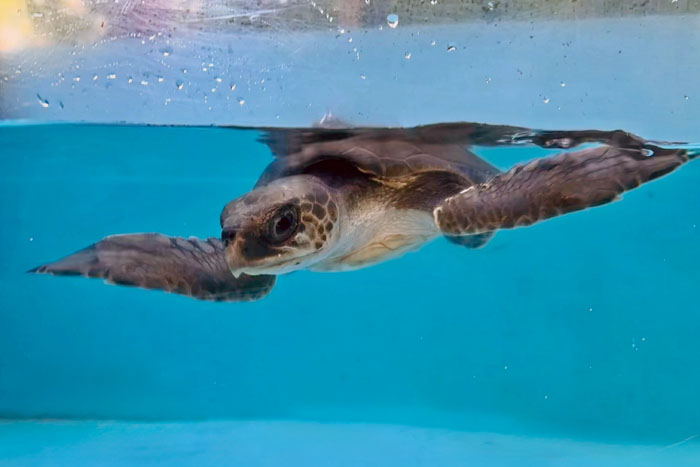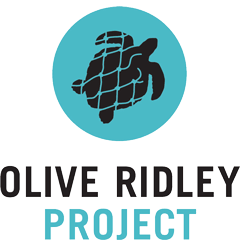Kadhuru’s Story
How Kadhuru was found
Kadhuru, a juvenile olive ridley turtle, was found floating and covered in tar by the Dive Butler Zen team, based at Mövenpick Resort Kuredhivaru in Noonu Atoll, Maldives in March 2024. When oil or tar covers wildlife such as sea turtles, it can coat their bodies, impair their ability to regulate temperature, hinder movement, and cause serious health issues, including respiratory problems and toxicity from ingestion.
The rescuers immediately called our veterinary team, and within the hour were able to transport him to our partner resort Soneva Jani, where Sarah and Athif, our sea turtle biologist and intern, were based at the time. Soneva Jani kindly sponsored a speedboat to bring little Kadhuru to the Rescue Centre the same day.
Kadhuru’s treatment and therapy
Kadhuru was in critical condition, deeply covered in thick tar which took time to clean off. Part of his skin had been burnt by the tar and one of his eyes was affected. It also became apparent that he had ingested some of the tar and we were very worried about the possible toxicity effects.
Thankfully, Kadhuru responded well to our treatment protocols. With dedicated supportive care, including cold laser therapy for wound management, Kadhuru’s condition steadily improved. Despite the initial challenges, Kadhuru soon had a healthy appetite and gained weight consistently.
How Kadhuru is doing
Kadhuru recovered from his ordeal in just a month. In April he was cleared for release and was able to go back to the ocean where he belongs. We always aim to return our sea turtle patients to the wild as soon as possible and were very happy that recovered so fast. We know very little about were juvenile sea turtles spend their time, so we hope he is happily foraging and growing into a healthy adult somewhere in the Indian Ocean.
You can help us save more injured turtles like Kadhuru by donating to our Big Give match funding campaign today.
If you donate between 22 – 29 April 2025 via the Big Give website your donation will be doubled at no extra cost to you.
This will help us rescue many more turtles, treat and release them back into the wild, and study their migration patterns to push for stronger protections for them and their habitats.


